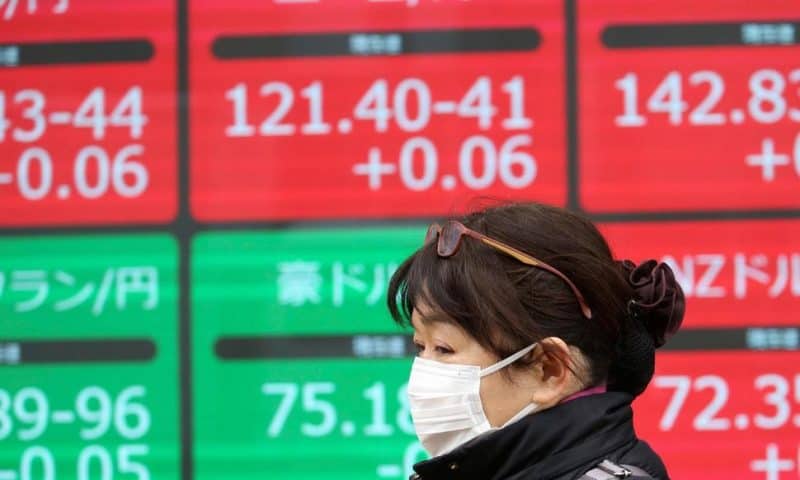World stock markets have stabilized after two days of losses as investors monitor tensions between the U.S. and Iran.
BANGKOK — Global stocks stabilized Tuesday and the price of oil edged off three-month highs, though investors remained cautious over rising tensions between the U.S. and Iran.
U.S. officials were bracing for Iran’s response to the killing by a U.S. drone of its most powerful general, Qassem Soleimani. Noting heightened levels of military readiness in the country, Washington was preparing for a possible “tit-for-tat” attack on an American military leader.
In Europe, Germany’s DAX advanced 0.8% to 13,231 while the CAC 40 in France climbed 0.3% to 6,033. Britain’s FTSE 100 edged 0.2% higher to 7,589. Futures for the S&P 500 and the Dow Jones Industrial Average were roughly unchanged.
“The positive sentiment is likely to continue for the remainder of the day as the underlying drivers of the stock market rally, the search for yield and global economic recovery, reassert themselves,” Jeffrey Halley of Oanda said in a commentary. “Only geopolitical headlines surprises from the Middle East are now likely to derail the rally.”
In Asia, most benchmarks rose, with Japan’s Nikkei 225 index adding 1.6% to 23,575.72. Hong Kong’s Hang Seng picked up 0.3% to 28,322.06, while the Shanghai Composite index gained 0.7% to 3,104.80. In South Korea, the Kospi rose 1% to 2,175.54. Australia’s S&P ASX 200 climbed 1.4% to 6,826.40. Shares fell 0.6% in Taiwan but rose in most of Southeast Asia.
Gold was steady Tuesday after touching its highest price since April 2013 on Monday as investors sought safety amid fears the antagonisms could lead to war. It was down 10 cents at $1,568.70 per ounce.
Gold has historically performed well in times of military conflict and has climbed more than $40 since before Soleimani’s killing.
Oil prices gave up some of their recent big gains on Tuesday, with benchmark U.S. crude dropping 41 cents, or 0.7%, to $62.86 per barrel in electronic trading on the New York Mercantile Exchange. It gained 22 cents to $63.27 per barrel on Monday.
Brent crude, the international benchmark, lost 51 cents, or 0.5%, to $68.40 per barrel. On Monday it added 31 cents to $68.91 per barrel.
In currency trading, the dollar rose to 108.45 Japanese yen from 108.33 yen on Monday. The euro slipped to $1.1168 from $1.1194.
Apart from waiting for next steps in the clash between the United States and Iran, several big economic reports are on the schedule this upcoming week that could move markets. The headliner is Friday’s jobs report from the government.
Solid jobs growth has helped support the U.S. economy, even as trade wars hurt manufacturing around the world. Economists expect Friday’s report to show that employers added 155,000 jobs last month. The healthy job market is one of the reasons the S&P 500 soared to its second-best showing in 22 years in 2019. Big moves by central banks around the world to shield the economy from the pain of trade wars also were big factors.

